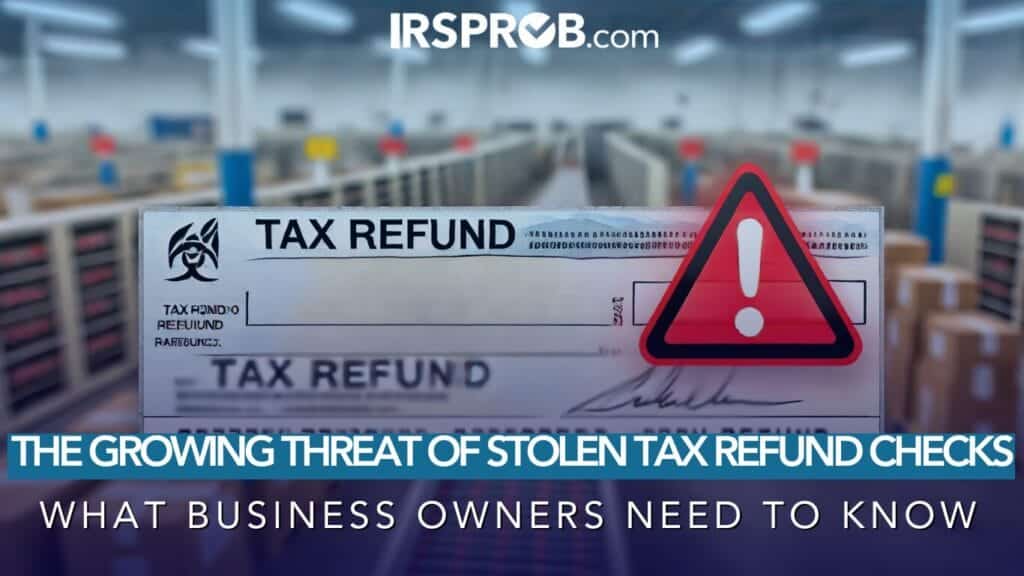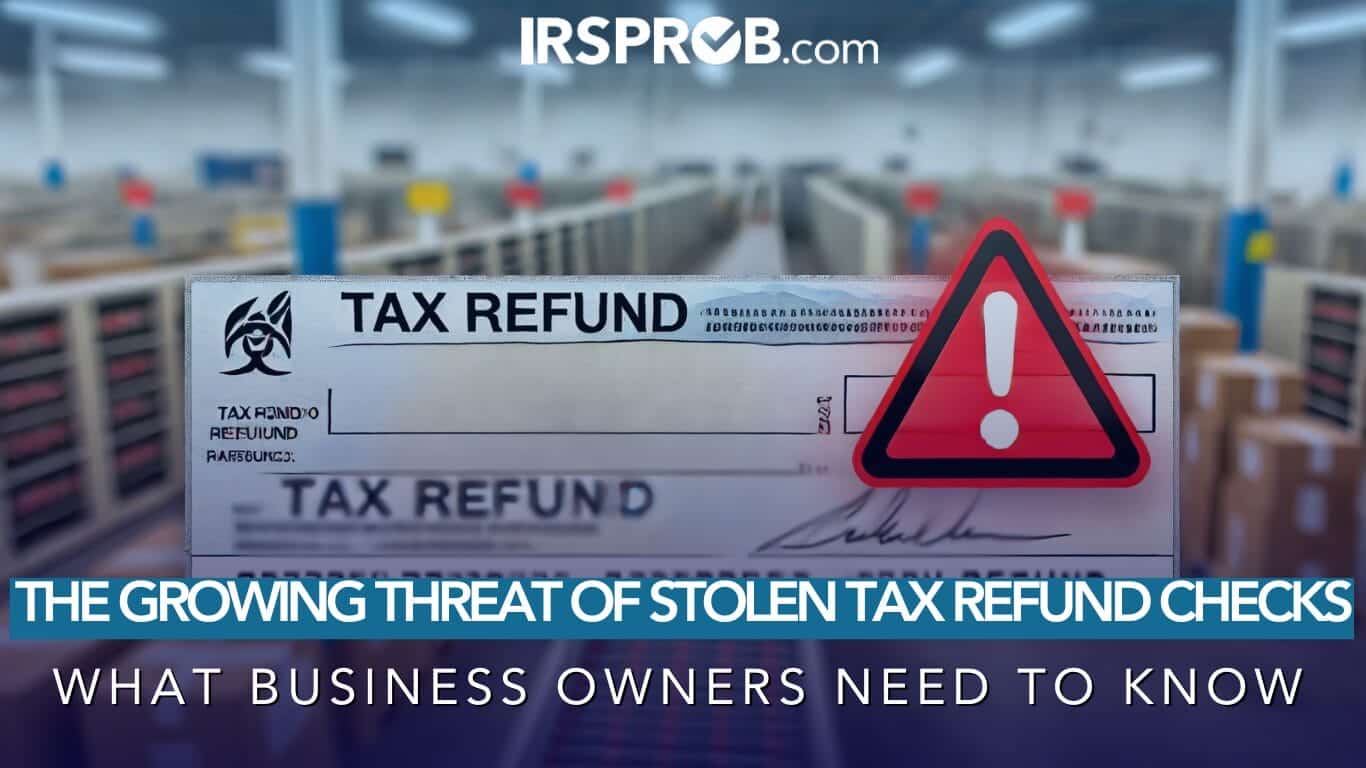
As tax season rolls around, many business owners look forward to receiving their tax refunds. However, a troubling trend is emerging: millions of tax refund checks are being stolen from the mail. According to recent reports, nearly 10 million taxpayers received paper refund checks last year, and those who prefer this method are increasingly becoming targets for check fraud.
The Scope of the Problem
Congressional representatives have raised alarms over the escalating thefts, with reports indicating cases totaling approximately $3.8 million, involving amounts ranging from a few hundred dollars to as much as $500,000. One notable incident involved a spine surgeon who, despite multiple attempts to have his $96,000 refund check reissued, found that each replacement was stolen before reaching him.
The IRS and the Treasury Department acknowledge the severity of this issue. The majority of taxpayers—over 90%—opt for direct deposit, which is considered the safest method for receiving refunds. However, for those who choose paper checks, or for cases where the IRS incorrectly processes direct deposit requests, the risk of theft is significantly higher.
Why Are Paper Checks Targeted?
Paper checks are easier targets for fraudsters compared to electronic transfers. The IRS has noted that many individuals prefer paper checks to avoid sharing sensitive banking information. Unfortunately, this decision can lead to significant delays and complications if checks are lost or stolen. Once a check is deemed lost, taxpayers cannot switch to direct deposit for that tax year, further complicating the situation.
The IRS is currently working on a technological solution to allow taxpayers to update their preferences more easily, but this upgrade is still a few years away.
Steps to Take If Your Check Is Stolen
If you find yourself in the unfortunate situation of having your tax refund check stolen, here’s what to do:
- Fill Out a Taxpayer Statement Form: If you filed jointly, both you and your spouse must complete this form.
- Submit the Form: Mail or fax it to the IRS office where you filed your tax return.
- Request a Refund Trace: Call the IRS directly to start the trace process for a new check.
- Wait for Processing: The process generally takes three to four months, although many cases are resolved in under 30 days. If the new check doesn’t arrive, you will need to repeat the process.
The Treasury’s Bureau of Fiscal Service verifies the legitimacy of the claim before issuing a new check, ensuring that the process is secure and reliable.
Combatting the Fraud
The Treasury’s Financial Crimes Enforcement Network has issued alerts regarding the increase in mail theft-related check fraud. There have been successful prosecutions of fraudsters, including cases involving millions of dollars in stolen checks. Despite these efforts, the problem persists, highlighting the need for ongoing vigilance from both taxpayers and government agencies.
Looking Ahead
As the IRS modernizes its infrastructure, improvements will be made to streamline processes and enhance security. A significant system upgrade is planned for next year, which will include features that may eventually allow taxpayers to upload forms digitally, eliminating the need for faxing altogether.
In the meantime, business owners should consider advocating for direct deposit when possible, as it remains the safest and most efficient way to receive refunds.
Conclusion
The theft of tax refund checks is a growing concern that affects many taxpayers, especially business owners who often face complex tax situations. Staying informed about these risks and knowing the steps to take in the event of theft can save time, stress, and potential financial loss. By prioritizing direct deposit and understanding the recourse available, you can better protect your tax refunds in this increasingly challenging environment.
For further assistance and to stay updated on tax-related issues, keep an eye on resources like IRSProb.com, where we provide insights and guidance to help you navigate your financial landscape effectively.








